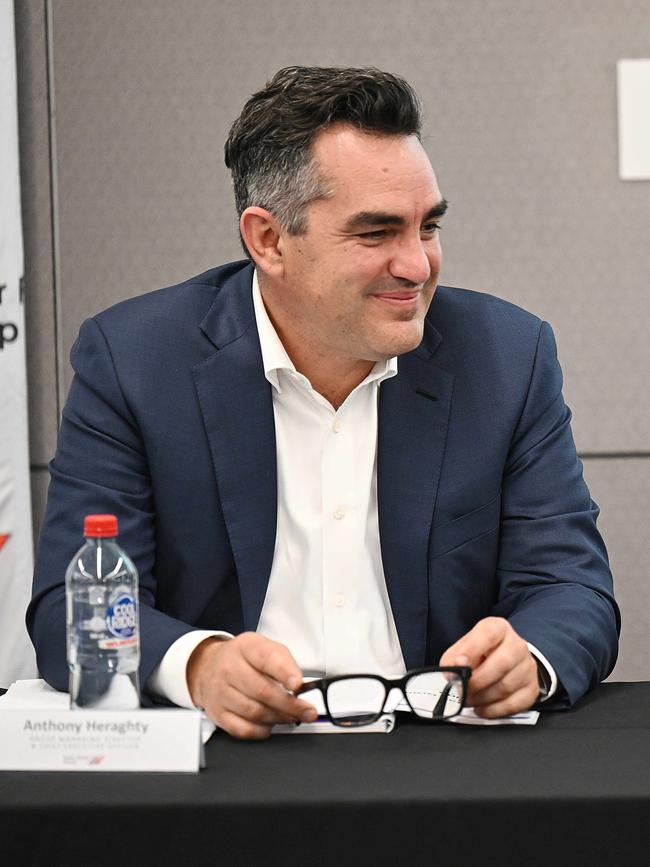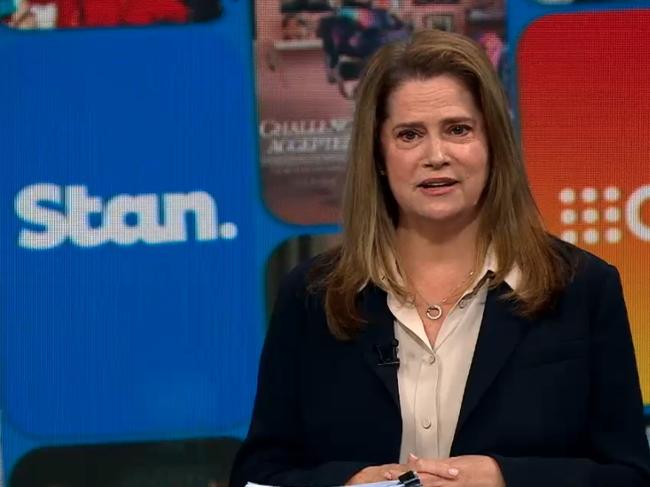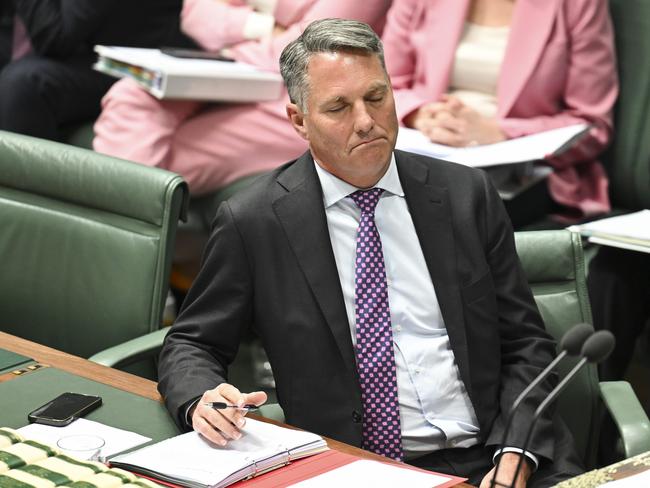Ownership Matters boss Dean Paatsch aims popgun at Nine after blasting Super Retail

Dean Paatsch, the boss of shareholder advisory group Ownership Matters, merrily stuck the knife into Super Retail Group earlier this year as the company defended a legal claim brought by two of its former employees.
These allegations included bullying, victimisation and inappropriate company travel, but the really sensational bit was a claim that CEO Anthony Heraghty had enjoyed an undisclosed romantic relationship with the company’s former head of HR, Jane Kelly.

Paatsch was quick to remark upon these untested governance issues as they were ventilated day after day in the Federal Court, despite the company having conducted its own inquiries with the help of an external firm. It found none of the allegations could be substantiated.
“We have serious concerns about corporate governance issues at Super Retail,” Paatsch told this newspaper in August. “Even though the allegations read like an episode of Married At First Sight, they raise important governance questions that the board must answer.”
Paatsch was full of questions for the board on this matter, and given the wall-to-wall coverage of Super Retail Group at the time, we can hardly blame him.
But then why, in the lead up to Nine’s AGM a week ago, did Paatsch have so little to say about the even larger governance crisis that has been unfolding at the media company for months leading up to its shareholder meeting?
In early October, as Nine management readied itself for the publication of a damning Intersection report into its company culture, Ownership Matters released advice to clients approving the re-election of Catherine West and WIN CEO Andrew Lancaster to the Nine board. It also recommended shareholder approval for the board’s remuneration report.
Where was the furrowed brow of concern over governance, as Paatsch had affected during the Super Retail fiasco? Where was the demand for directors to be accountable for setting the good brand’s name ablaze? Where were the MAFS analogies?
Paatsch’s advisory note barely mentioned the incoming Intersection report, giving it just two sentences. One said the report existed. The other said: “The board has committed to transparently disclosing the findings of this report to investors in coming months upon release.”

Not quite the rigorous account-holding that we saw him demanding in the case of Super Retail Group.
Paatsch’s explanation was that he couldn’t know the contents of the Nine report before it was published.
“We’re not Nostradamus,” he said on Monday. “We published our report before Nine’s cultural review was released. It was impossible for us to know what was in it.”
Rubbish. The departure of news boss Darren Wick led to a downright reckoning at Nine, with management so alarmed by the allegations surfacing in the press that it launched an independent review of the TV division. And available on the public record was a litany of anonymous complainants talking to staff mistreatment and management misconduct.
Even so, the Intersection report surfaced three weeks prior to Nine’s AGM on November 7. It found 52 per cent of Nine employees had experienced or witnessed abuses of power or authority. Nearly half – 49 per cent – had experienced bullying, discrimination or harassment. Nearly a quarter spoke of sexual harassment.
Did Ownership Matters bother to update its advisory to clients in light of these damning conclusions? Of course it didn’t. Even now, despite his familiarity with the report, Paatsch says he still wouldn’t change his recommendations for the reappointments of West and Lancaster.
Consider, by contrast, the proxy advisers at Institutional Shareholder Services, who recommended a protest vote against all three of the board resolutions, noting that West had been on the board for eight years and Lancaster for three. After all, it was on their watch that the culture at Nine degenerated.
“Shareholders may seek to hold directors accountable for the failures of governance, board and risk oversight, with specific reference to the issues identified by the Intersection Report,” the ISS report said. YB
$500 for a pie and pint with Marles
You’d think a fundraiser with the acting Prime Minister would command a bit more dosh than those involving mere Ministers, but apparently not.
On Monday Labor’s business roundtable was offering up acting PM Richard Marles (also the Defence Minister, don’t you know?) for a discount $500 a head – well below the $2000 to $5000 a seat the corporate world is normally charged for access to a Minister or two.
Readers may recall that even assistant treasurer Stephen Jones was able to command $4000 a head amid Labor’s rush of corporate fundraisers in October.

To be fair, the Marles function was billed as canapes and a spot of booze upstairs at a Canberra pub, not a proper sit down meal. Invitations also boasted the presence of other “Labor MPs and trailblazers”, surely boosting the attraction of would-be attendees (and even other Labor MPs).
Still, you’d think Labor might have pushed the asking price into four figures, if only to spare Marles’ blushes.
Mind you, his discounted booking might set the new standard if Anthony Albanese’s government gets its way on long-awaited donations reform.
That is because the new legislation, introduced on Monday, does not make the traditional carve-out for the Federal Labor Business Forum, and its Liberal equivalent, which have made the unedifying practice of charging for access to senior political figures over dinner such a moneymaker for the major parties.
Labor charges $110,000 a year for its top-tier forum membership, with the bottom level at $33,000. Dinners come with the package at top levels, and at a discount in lower tiers.
Under the new reforms “gifts” from individuals and companies would be capped at $20,000 a year – which would seemingly apply to both memberships of the business forums as well as individual tickets. Pony up $20,00 for an annual forum membership, and that’s your political largesse done for the year.
There’s undoubtedly a clever way to skirt the rules buried in the details of the legislation. But if not, it suggests that a $500 pint and party pie might be closer to the going rate from mid-2026 – but only if Peter Dutton’s party room signs off on support for the changes. NE



To join the conversation, please log in. Don't have an account? Register
Join the conversation, you are commenting as Logout